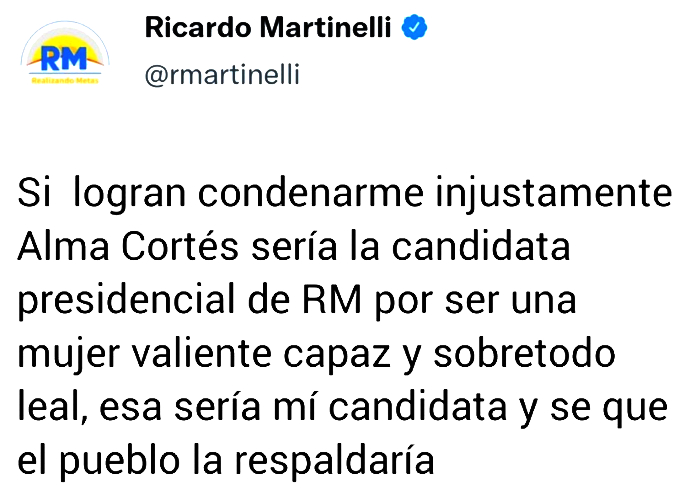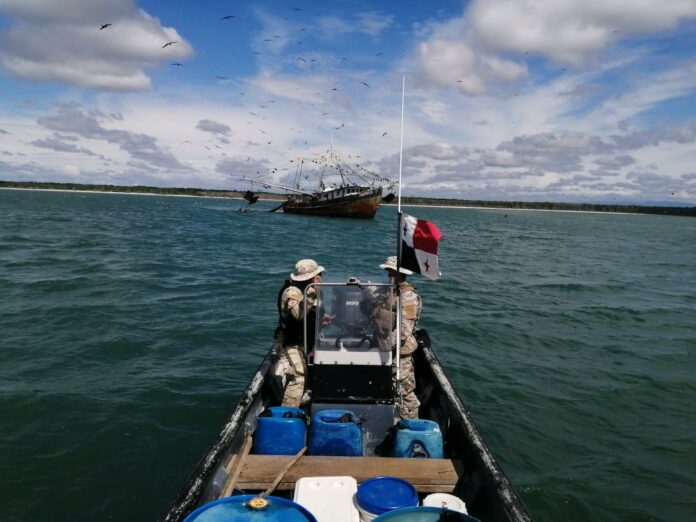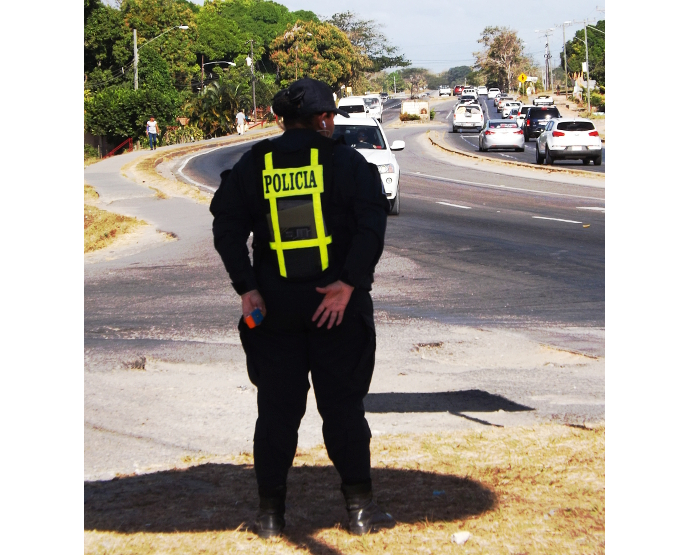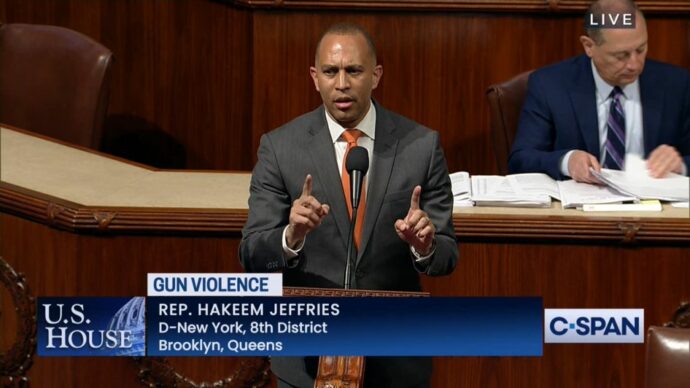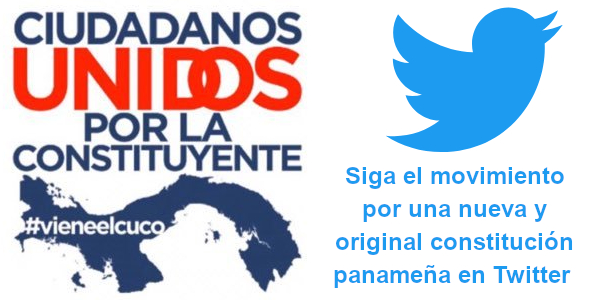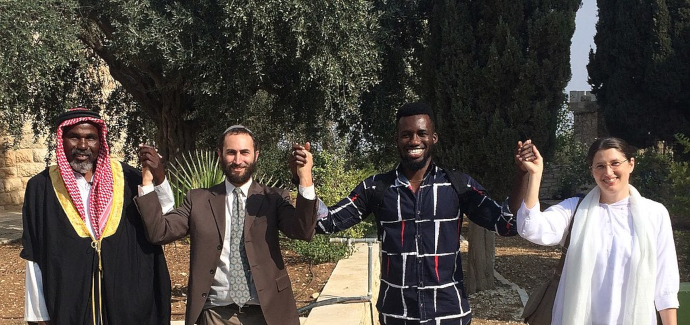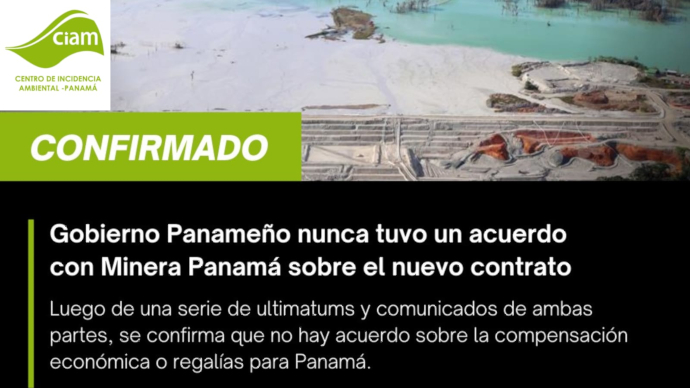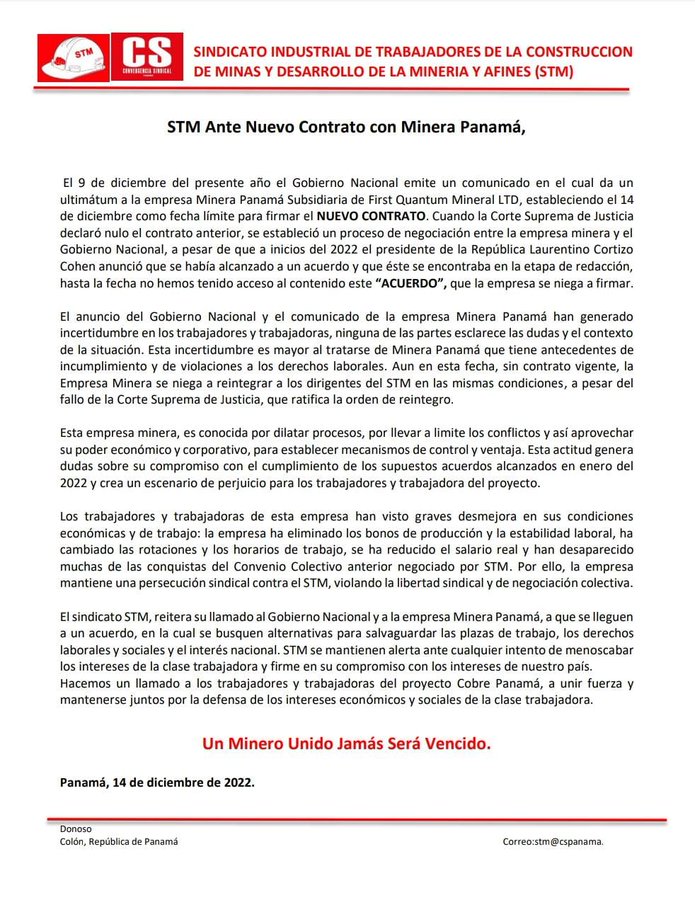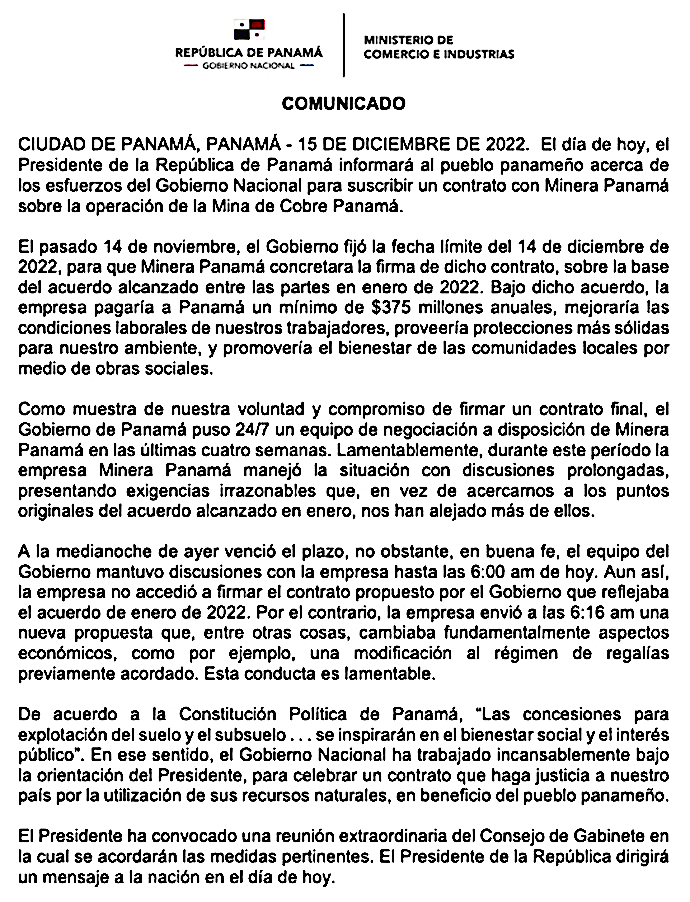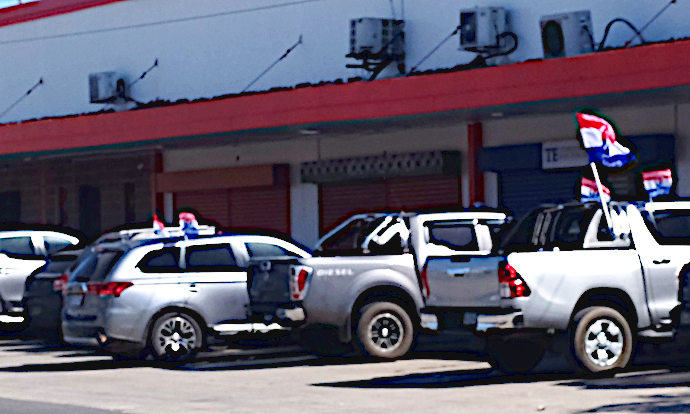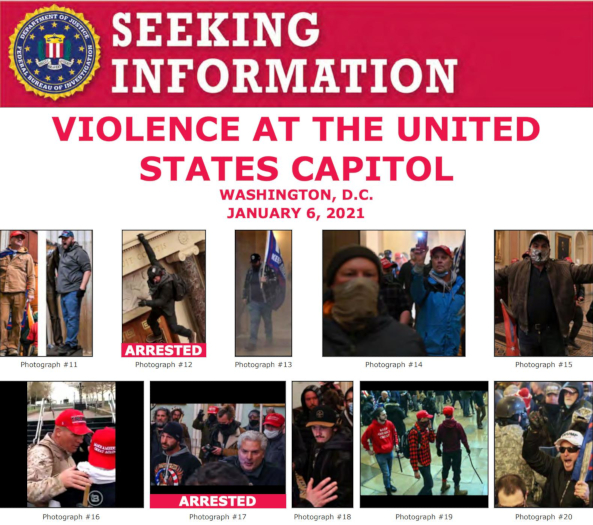By way of Twitter, Ricardo Martinelli designated attorney and former labor minister Alma Cortés to run for president in his stead if a criminal conviction prevents him from running himself. But now, on the eve of a national day of mourning when hardly anyone was paying attention, it was announced that a misappropriation of government funds case against Cortés and five co-defendants has been revived on appeal from a trial court ruling. Her exposure to prison might be avoided by payment of a fine, but the possible suspension of political rights could prevent her from running.
The architect of many legal delays and a notoriously
anti-labor former labor minister may see her streak end
by Eric Jackson
Alma Cortés was a criminal defense lawyer for white collar thugs and upscale racketeers, never a labor lawyer. But she has been for years a member of Ricardo Martinelli’s inner circle, a weaver of countless dodges and delays in the many cases against him.
Her “day job” while Martinelli was president was as Minister of Labor Development. In that post she carried out policies aimed at smashing the labor unions. Since Martinelli left office she has largely dedicated herself to keeping him out of prison. The architect of countless delays, judges are ever more weary of doctors’ notes for herself, fellow members of the Martinelli defense teams, or for the former president or his co-defendants.
Will that streak hold up? So far she put things off for as long as she could. It hasn’t worked to prevent him from being called to trial next year on two sets of charges. One is for taking kickbacks from Odebrecht public works construction projects. The other is for taking different kickbacks from other public contractors and then elaborately laundering the proceeds in order to buy control of the EPASA newspaper chain. (That’s El Panama America, La Critica and Dia a Dia.)
Meanwhile, nine years ago Cortés led a delegation to Geneva for an International Labor Organization gathering. It seemed to be mainly an expensive vacation in Switzerland at government expense, but she says it only looked that way because of some paperwork errors. In any cases the money was paid back, so no harm, no foul, right?
A pickpocket or a shoplifter doesn’t get that sort of way out, but this is a respected professional here. And last September somehow or another a trial court judge was convinced to accept that and dismiss the charges against Cortés and her co-defendants.
The prosecution appealed and on December 19 it was announced that the Superior Court of Appeals had reverse the lower court decision to throw out the charges. Now SHE is bound over for her own trial next year.
If the book gets thrown, she could be sentenced to two year and eight months in prison. Under the Panamanian criminal justice system, one can generally buy a get out of jail pass for sentences of under four years. It would be peanuts for Martinelli to cover. HOWEVER, with a prison sentence there usually also comes a suspension of political rights that is not avoidable by way of a fine. If it’s 32 months, imposed next year, she would be disqualified from running for president in 2024.
Lots and lots of ifs, but since his two sons pleaded guilty in a US federal district court to laundering some $28 million of their dad’s Odebrecht bribes, Martinelli’s legal fortunes seem to have turned. It’s an embarrassment to judges and prosecutors if they take dives for Team Martinelli, and they risk members of their families being barred from setting foot in the United States for such stuff on top of the disrepute.
But “alleged.” She’s innocent unless proven guilty, and even then a judge or a panel of judges might ignore any and all proofs. We shall see. Maybe, after Plan A and Plan B get thwarted, Plan C for a Martinelli comeback?
Contact us by email at fund4thepanamanews@gmail.com
To fend off hackers, organized trolls and other online vandalism, our website comments feature is switched off. Instead, come to our Facebook page to join in the discussion.
These links are interactive — click on the boxes
In January 2019, the Korean-flagged fishing vessel Oyang 77 sailed south toward international waters off Argentina. The vessel had a known history of nefarious activities, including underreporting its catch and illegally dumping low-value fish to make room in its hold for more lucrative catch. At 2 a.m. on January 10, the Oyang 77 turned off its location transponder at the edge of Argentina’s exclusive economic zone – a political boundary that divides Argentina’s national waters from international waters, or the high seas. At 9 p.m. on Jan. 11, the Oyang 77 turned its transponder back on and reappeared on the high seas. For the 19 hours when the ship was dark, no information was available about where it had gone or what it did. In a recent study, I worked with colleagues at Global Fishing Watch, a nonprofit that works to advance ocean governance by increasing transparency of human activity at sea, to show that these periods of missing transponder data actually contain useful information on where ships go and what they do. And authorities like the International Maritime Organization can use this missing data to help combat illegal activities at sea, such as overfishing and exploiting workers on fishing boats. Illegal fishing causes economic losses estimated at $US10 billion to $25 billion annually. It also has been linked to human rights violations, such as forced labor and human trafficking. Better information about how often boats go dark at sea can help governments figure out where and when these activities may be taking place. The high seas are the modern world’s Wild West – a vast expanse of water far from oversight and authority, where outlaws engage in illegal activities like unauthorized fishing and human trafficking. Surveillance there is aided by location transponders, called the Automatic Identification System, or AIS, which works like the Find My iPhone app. Just as thieves can turn off phone location tracking, ships can disable their AIS transponders, effectively hiding their activities from oversight. Often it’s unclear whether going dark in this way is legal. AIS requirements are based on many factors, including vessel size, what country the vessel is flagged to, its location in the ocean and what species its crew is trying to catch. A ship that disables its AIS transponder disappears from the view of whomever may be watching, including authorities, scientists and other vessels. For our study, we reviewed data from two private companies that combine AIS data with other signals to track assets at sea. Spire is a constellation of nanosatellites that pick up AIS signals to increase visibility of vessels in remote areas of the world. Orbcomm tracks ships, trucks and other heavy equipment using internet-enabled devices. Then, we used machine learning models to understand what drove vessels to disable their AIS devices. Examining where and how often such episodes occurred between 2017 and 2019, we found that ships disabled their transponders for around 1.6 million hours each year. This represented roughly 6% of global fishing vessel activity, which as a result is not reflected in global tallies of what types of fish are being caught where. Vessels frequently went dark on the high-seas edge of exclusive economic zone boundaries, which can obscure illegal fishing in unauthorized locations. That’s what the Oyang 77 was doing in January 2019. The AIS data we reviewed showed that the Oyang 77 disabled its AIS transponder a total of nine times during January and February 2019. Each time, it went dark at the edge of Argentinean national waters and reappeared several days later back on the high seas. During the ninth disabling event, the vessel was spotted fishing without permission in Argentina’s waters, where the Argentinean coast guard intercepted it and escorted it to the port of Comodoro Rivadavia. The vessel’s owners were later fined for illegally fishing in Argentina’s national waters, and their fishing gear was confiscated. AIS disabling is also strongly correlated with transshipment events – exchanging catch, personnel and supplies between fishing vessels and refrigerated cargo vessels, or “reefers,” at sea. Reefers also have AIS transponders, and researchers can use their data to identify loitering events, when reefers are in one place long enough to receive cargo from a fishing vessel. It’s not unusual to see fishing vessels disable their AIS transponders near loitering reefers, which suggests that they want to hide these transfers from oversight. While transferring people or cargo can be legal, when it is poorly monitored it can become a means of laundering illegal catch. It has been linked to forced labor and human trafficking. Making it illegal for vessels to disable AIS transponders might seem like an obvious solution to this problem. But just as people may have legitimate reasons for not wanting the government to monitor their phones, fishing vessels may have legitimate reasons not to want their movements monitored. Many vessels disable their transponders in high-quality fishing grounds to hide their activities from competitors. Although the ocean is huge, certain species and fishing methods are highly concentrated. For example, bottom trawlers fish by dragging nets along the seafloor and can operate only over continental shelves where the bottom is shallow enough for their gear to reach. Modern-day pirates also use AIS data to intercept and attack vessels. In response, ships frequently disable their transponders in historically dangerous waters of the Indian Ocean and the Gulf of Guinea. Making AIS disabling illegal would leave fishing vessels more vulnerable to piracy. Instead, in my view, researchers and maritime authorities can use these AIS disabling events to make inferences about which vessels are behaving illegally. Our study reveals that AIS disabling near exclusive economic zones and loitering reefers is a risk factor for unauthorized fishing and transshipments. At sea, real-time data on where vessels disable their AIS transponders or change their apparent position using fake GPS coordinates could be used to focus patrols on illegal activities near political boundaries or in transshipment hot spots. Port authorities could also use this information onshore to target the most suspect vessels for inspection. President Joe Biden signed a national security memorandum in 2022 pledging U.S. support for combating illegal, unreported and unregulated fishing and associated labor abuses. Our study points toward a strategy for using phases when ships go dark to fight illegal activities at sea. Heather Welch, Researcher in Ecosystem Dynamics, University of California, Santa Cruz This article is republished from The Conversation under a Creative Commons license. Read the original article. Contact us by email at fund4thepanamanews@gmail.com To fend off hackers, organized trolls and other online vandalism, our website comments feature is switched off. Instead, come to our Facebook page to join in the discussion. These links are interactive — click on the boxes Leave your intoxicating substances in the trunk until you get where you are going. Don’t drink on the bus and throw beer cans out the window. Don’t pretend that the risk of COVID is over. Don’t take a gun when you go to celebrate the glories of your religion with family and friends. Don’t ignore the red “beach closed” and yellow caution flags that SINAPROC puts up on the beaches. Avoid situations in which your poverty makes you feel ashamed in the presence of people who are geeked out on materialist displays. Be kind to weirdos and outcasts, and don’t get all defensive about it if you happen to be one of these. It’s supposed to be the season of peace and joy. Don’t be an unfortunate footnote in the tragedy accounts in the post-holiday newspapers. Enjoy your life, and the lives of those around you, with what you have. The people who get all gushy about the wonderful the omnibus spending bill just passed by the US Congress and signed by President Biden generate their geysers from shallow and tainted wells. Those who get the most indignant about it play to the most foolish and destructive elements of the American electorate. There are flecks of pork for the Democrats – funding for the National Labor Relations Board at a time of an upsurge in union organizing, inclusion of reforms to the Electoral Count Act to prevent a repeat of Donald Trump’s coup attempt after the last presidential election and increased corporate merger fees intended to slow the concentration of wealth in American life to name three. However, Washington also raised military spending not so much to keep American forces strong but to keep defense contractors rich. The Maine lobster fishery got ghost net protections that may well lead to the extinction of right whales. Some Republican tax cut proposals didn’t make it into the bill but the rich gained billions on their retirement bennies while the poor lost on the child tax credits. It will be blamed on the states, but huge Medicaid health care spending cuts are on the way. It was an unsightly budget compromise that would make the stuff the goes on in sausage factories look beautiful. But then, it funds the government through next year, and the most reactionary MAGA Republicans in the House are vowing to wage war against the 19 Senate Republicans who “threw away” their opportunity to threaten government shutdowns before the 2024 campaign season gets going full blast. To top that off the more perverse partisans on the Democratic side of the aisle are treated to a pre-Christmas mud rassling show between MAGA congresswomen Lauren Boebert and Marjorie Taylor Greene. So, two more years of this for the 118th Congress? Bad enough, but not as bad as some of the gridlock we have seen. Plus, things won’t remain static. There are already a few special elections pending and as we see the laughable fraud that’s representative-elect George Santos collapse there will probably be another one on New York’s Long Island in short order. Then, although there will not be the votes in the House to keep pedophiles and insurrectionists from being seated on the Republican side, prosecutions and convictions may end up forcing the GOP hand in some of those cases. We shall see how the combination of more specific local scrutiny but lower voter turnout will add up in by-elections. Probably ideology and identity will be more important, with influential national backing and idiocy from Fox News et al taking a back seat. The Republicans probably won’t lose their paper-thin House majority, but they already appear short of a working majority and that situation will probably get worse for them. Are we about to see an interregnum of divided government – divided into four, rather than two? Corporate centrists versus progressives on the Democratic side, with MAGAs versus those whom the far right derides as RINOs in the Republican caucus – can that work? It probably actually can, albeit not as well as anyone would like it to work. Nature is under control but not disturbed. Princess Beatrix, former Queen of The Netherlands Each generation must discover its mission, fulfill it or betray it, in relative opacity. Frantz Fanon Confuse the enemy. Keep him in the dark on your intentions. Sometimes what seems a victory isn’t really a victory and sometimes a defeat isn’t really a defeat. Whether in attacking, counterattacking, or defensive tactics, the idea of attacking should remain central, to always keep the initiative. General Vo Nguyen Giap It’s better to look ahead and prepare, than to look back and regret. Jackie Joyner-Kersee Contact us by email at fund4thepanamanews@gmail.com To fend off hackers, organized trolls and other online vandalism, our website comments feature is switched off. Instead, come to our Facebook page to join in the discussion. These links are interactive — click on the boxes Today, Monday, December 19, marks exactly 43 years since I was savagely beaten by agents of the military dictatorship for protesting against the presence of the bloodthirsty Shah of Iran in Panama, as a guest of the prevailing militarism. The peaceful demonstration convened that December 19, 1979 in front of the Don Bosco Church, gathered a hundred citizens and a short distance away, numerous radio patrols and motorcyclists of the Guardia Nacional, all with combat harnesses. Also present were countless agents of the G-2, disguised as civilians. As we grouped together to march, more than 20 motorcycles advanced towards us. Panic ensued. The demonstrators ran towards the sidewalks. The motorcycles stopped a few meters from where I was. Megaphone in hand, I walked towards the guardia in order to parley. In seconds, with an unprecedented ferocity, hose in hand and shouting a whirlwind of vulgarities and shouting: “Here is Bernal, hit him, kill him.” They came at me, supported by numerous G-2 and other armed elements. They pushed each other in order to hit me. The hoses, punches and kicks fell on me with brutal fury. There were too many of them. I was this immense stain that they hit and hit without any scruple. They picked up their victim when I fell, to continue their blows. The brutal beating also reached Victor Navas King, who intervened to try to pull me out of the mortal circle, as well as Doña Elvia Lefevre de Wirz and another unknown lady. The voices of the executioners repeated: “Hit him, kill him!” The fiercest of them all, the one who commanded the aggression, was Fritz Gibson Parrish, known by the nickname of “Sangre.” Then, in a state of unconsciousness, I was taken to the Central Barracks and much later, to the Santo Tomás Hospital where the doctors gave me the assistance that would save my life. Those directly responsible for the aggression were duly denounced to the judicial authorities in 1990. I am still waiting for justice. Contact us by email at fund4thepanamanews@gmail.com To fend off hackers, organized trolls and other online vandalism, our website comments feature is switched off. Instead, come to our Facebook page to join in the discussion. These links are interactive — click on the boxes Update: Late Sunday, Twitter deleted the newly announced policy from its website and posted a poll asking users whether they would support the policy change. Background to that: “”Not sure he can get away with this in the US under the current FTC,” noted one journalist, “but I suspect this is wildly illegal in the EU.” Elon Musk’s Twitter announced Sunday that users are no longer allowed to post links to some of the social media platform’s competitors, including Facebook, Mastodon, Instagram, and Post, a move likely to draw the notice of the US Federal Trade Commission and European Union officials. In a post explaining the new policy, Twitter said it will “remove any free promotion of prohibited 3rd-party social media platforms, such as linking out (i.e. using URLs) to any of the [banned] platforms on Twitter.” “Accounts that are used for the main purpose of promoting content on another social platform may be suspended,” Twitter said. “Additionally, any attempts to bypass restrictions on external links to the above prohibited social media platforms through technical or non-technical means (e.g. URL cloaking, plaintext obfuscation) is in violation of this policy.” One exception to the ban, the company noted, is “paid advertisement/promotion for any of the prohibited social media platforms.” Critics said the move amounts to blatant anticompetitive behavior and urged the FTC—led by “antitrust trailblazer” Lina Khan—to closely examine the new policy, which Twitter rolled out as Musk continues to make a mockery of his pledge to support free expression on the platform, including by suspending and permanently banning journalists who are reporting on his management of the company he purchased for $44 billion. “There’s a lot of competition but this is probably Musk’s worst policy move so far,” said Evan Greer, director of the digital rights group Fight for the Future. “Unquestionably censorious and anti-speech, huge, immediate problem for large numbers of users, flies in the face of Internet openness and everything social media ideally should be. Just appalling.” Brendan Keefe, an investigative journalist, tweeted that he has reported the policy to the FTC as “a possible antitrust violation.” “I have also filed a formal notification to antitrust@ftc.gov,” Keefe added. “It is standard practice for journalists to share their social media handles on all platforms. Now that will get you booted from Twitter.” Twitter had already banned links to Mastodon, a platform that some have flocked to as an alternative to the Musk-run website. Bill Baer, a former top antitrust official at the Justice Department and the FTC, said Friday that he “could see all sorts of problems” with the Mastodon ban “both from a competition and a consumer protection standpoint.” The FTC stresses on its website that it is illegal for a company with market power to “maintain or acquire a dominant position by excluding competitors or preventing new entry.” Twitter has been on the FTC’s radar following Musk’s takeover and subsequent mass layoffs and firings. As Bloomberg reported Thursday, the agency has sent letters to Twitter expressing concern that the company “doesn’t have the security or legal resources to meet the requirements of its agreement with the FTC regarding user privacy and data security.” Twitter’s new policy could also face scrutiny from EU officials, who have already voiced alarm over some of Musk’s moves as head of the platform used by hundreds of millions of people worldwide. “Not sure he can get away with this in the US under the current FTC, but I suspect this is wildly illegal in the EU,” tweeted The Intercept’s Ryan Grim. Under the EU’s Digital Markets Act, platforms are not allowed to “prevent consumers from linking up to businesses outside their platforms.” Contact us by email at fund4thepanamanews@gmail.com To fend off hackers, organized trolls and other online vandalism, our website comments feature is switched off. Instead, come to our Facebook page to join in the discussion. These links are interactive — click on the boxes Puerto Rico’s current status as an unincorporated territory of the United State limits the island’s full political, economic, and social development. First, a little background… The United States has controlled Puerto Rico since 1898, after defeating Spain in the Spanish-American War, but Puerto Ricans did not become American citizens until 1917. They can be drafted into the military, pay payroll taxes, and help fund programs like Medicaid and SNAP, but Puerto Ricans are unable to vote for president, do not have a voting representative in Congress, and have almost no access to federal safety net programs, even though more than 40% of the island lives in poverty. While many Puerto Ricans agree that they would like more say over the status of the island’s relationship to the USA, the reality is that which kind of status – whether that’s statehood, independence, or sovereignty in free association with the United States – is a controversial topic amongst its residents. That’s where the Puerto Rico Status Act comes in… Alexandria has prioritized developing a transparent, inclusive process for Puerto Ricans to choose how to move forward with their relationship to the United States, which is why she was proud to co-sponsor the Puerto Rico Self-Determination Act alongside Representative in March 2021. Key elements of that bill were incorporated into the Puerto Rico Status Act, including: • A binding plebiscite. Puerto Ricans have voted for changes in status in the past, but all were non-binding resolutions, and saw no real changes to the island’s relationship to the United States. The PR Status Act would ensure implementation of the status voted on by the majority (51%) of Puerto Rico’s population. Other key victories in the bill include protections for Puerto Ricans from being stripped of their US citizenship – no matter the outcome of the vote – and 10 years of financial assistance to the island if it chooses independence. But this bill is just a first step. While the Puerto Rico Status Act does not address other key factors impacting Puerto Ricans’ quality of life — including problems with the energy grid, PROMESA, and Act 20 — it does represent a giant step forward for bringing justice to the colonized people of Puerto Rico. We will stand with the organizers in Puerto Rico as they continue to demand improvements for their community. ¡Pa’lante! Contact us by email at fund4thepanamanews@gmail.com To fend off hackers, organized trolls and other online vandalism, our website comments feature is switched off. Instead, come to our Facebook page to join in the discussion. These links are interactive — click on the boxes Treinta tantos años atrás, cuando Estados Unidos invadió Panamá, el mundo vivía una coyuntura histórica de cambio de signo político; la Guerra Fría agonizaba, aunque no nos dábamos cuenta. Semanas antes habían empezado en Europa Oriental y la República Democrática Alemana las movilizaciones que culminaron con la caída del Muro de Berlín y, meses después, con la desaparición de la Unión Soviética y el llamado Bloque Socialista. Aunque no éramos conscientes de ello, se estaba produciendo una derrota social y económica para la clase trabajadora mundial, gracias por causa del modelo neoliberal; y una derrota ideológica y política para el movimiento comunista, la cual se hizo extensiva a todos los proyectos de “izquierda”. Una derrota relativa, por supuesto, pero derrota, al fin y al cabo. No vimos venir la nueva coyuntura. Tan es así que la revista internacional de la Liga Internacional de los Trabajadores (LIT-CI) editorializó, en diciembre de 1989, que una invasión a Panamá era imposible. Influidos por esos criterios erróneos, la noche del 19 de diciembre, el Comité Ejecutivo del Partido Socialista de los Trabajadores (PST) de Panamá estuvo reunido hasta tarde analizando los informes sobre una posible invasión, pero se descartó la idea. Nos despedimos hasta el año nuevo. Poco después de llegar a nuestras casas las bombas despejaron todas las dudas. La coyuntura 1989-90 también implicó un cambio de época en Centroamérica. Veníamos de 20 años de guerras civiles contra las dictaduras militares apoyadas por el Pentágono, cuyo cénit fue la victoria de la Revolución Sandinista en 1979, que abrió diez años a un gobierno del FSLN presidido por Daniel Ortega y los 9 comandantes. Aunque esa revolución fue sitiada, como todas, y agredida por Estados Unidos (recordemos el escándalo Irán-Contras), su triunfo dio impulso a los procesos revolucionarios en Honduras, El Salvador y Guatemala. Sin embargo, contra todo pronóstico, aquel diciembre de 1989 se gestaba una nueva fase que inició con una gran ofensiva militar del FMLN en San Salvador, la cual terminaría no con la victoria tan esperada, sino en una mesa de negociaciones que puso fin a la guerra e incorporó a los exguerrilleros a la política nacional, por supuesto, sin que se cumpliera ninguno de los objetivos políticos y sociales que habían guiado la lucha armada. Los Acuerdos de Paz se extendieron a Guatemala también y abrieron una época de 20 años de estabilidad política basada en gobiernos seudodemocráticos y neoliberales, con los guerrilleros devenidos en partido político. Para decepción de muchos, en paralelo se dio la derrota electoral del FSLN en Nicaragua y la asunción al poder de doña Violeta Chamorro, al frente de una coalición de derechas, con lo cual se cerró el ciclo revolucionario abierto en 1978-79. Panamá venía de una década de crisis política creciente, acicateada desde arriba por una lucha por el control del liderazgo militar, luego de la muerte del general Omar Torrijos, en 1981; y desde abajo, por la resistencia a la aplicación de políticas neoliberales, que se expresó en una oleada de huelgas y movilizaciones, especialmente a partir de 1984, cuando EE UU y los militares impusieron mediante el fraude electoral a Ardito Barletta, funcionario del Banco Mundial. Aunque el general Manuel A. Noriega recibió como apoyo del Pentágono la asistencia militar para crear un ejército (las Fuerzas de Defensa) que sustituyera al norteamericano a medida se concretaba la reversión del canal con el cumplimiento de los Tratados de 1977, cuando la crisis iba en escalada y la figura del general concitaba el repudio popular, Washington empezó a pedirle, al principio muy cuidadosamente, que pusiera fecha a su jubilación. Pero en febrero-marzo de 1988 se produjo la ruptura entre ambos aliados (EE. UU.-Noriega), misma que se formalizó en sanciones económicas muy duras para el país. Según el periodista Bob Woodward, la decisión definitiva de invadir Panamá se tomó luego de las fracasadas elecciones presidenciales, en mayo de 1989. En ese momento se planeó una estrategia para rediseñar las instituciones políticas del país y probar nuevos criterios con los cuales hacer la guerra en el extranjero y superar el llamado Síndrome de Vietnam. El sofisticado armamento del ejército estadounidense utilizado en la invasión a Panamá incluyó los últimos adelantos tecnológicos alcanzados por ese país en el «arte» de hacer la guerra, y que luego serían usados masivamente en la guerra del Golfo Pérsico: bombarderos Stealth F-117, bombas de 2,000 libras, misiles Hellfire, helicópteros y lanzamisiles Blackhawk, Apache AH-64 y Cobra, aviones de asalto A-37, cañones de fuego rápido de 30 mm, vehículos HMMWV (Hummer) con ametralladoras de alto calibre, fusiles M-16 con mirilla infrarroja. Diversos organismos de derechos humanos, entre los que podemos mencionar a la Asociación Latinoamericana de Derechos Humanos (ALDHU), consideraron que tal despliegue de capacidad bélica, muy superior al armamento de las Fuerzas de Defensa panameñas, no sólo era injustificado, sino que era violatorio de la Convención de Ginebra (Protocolo I, título III, sección I) que «prohíbe expresamente el empleo de armas, proyectiles, materias y métodos de hacer la guerra que causen males superfluos o sufrimientos innecesarios». Pero lo más novedoso de la invasión consistió en el control de la prensa, que impidió a los periodistas acceder a las zonas de conflicto para que no reportaran situaciones de violación a los derechos humanos y crímenes contra civiles, una de las causas del repudio generalizado a la guerra de Vietnam. Por eso la inexistencia de imágenes directas del combate y la prevalencia de tomas lejanas o posteriores. El periodista que mejor documentó con imágenes la invasión, el español Juantxu Rodríguez, fue sospechosamente asesinado por las tropas norteamericanas con un certero tiro en la cara, en la puerta de su hotel, en una zona en la que no había combates. Desde el primer momento de la invasión, la mentira y la manipulación de la verdad fue una estrategia clave del gobierno de George Bush y sus aliados en los medios de comunicación. Este método se ha vuelto clave en todos los conflictos en que interviene Estados Unidos, militar o políticamente, desde Venezuela a Bolivia, en el último período. En Panamá sirvió para amedrentar a las víctimas y sus familiares imponiendo la mentira de que todos eran norieguistas y delincuentes. Frecuentemente explicamos a los jóvenes que la invasión no fue algo malo que le pasó a gente que no conocieron. La invasión y sus consecuencias se han padecido por treinta años: Treinta años ha costado en Panamá que la gente empiece a comprender la esencia antidemocrática y corrupta del régimen actual y todos sus órganos del Estado. Una nueva generación se ha levantado contra el lavado de cara que quieren hacer con las reformas constitucionales que no cambian nada. Luchando por verdaderas transformaciones, la juventud ha ganado la calle y rodeado la Asamblea Nacional. Treinta años también han tardado decenas de familiares y de víctimas de la invasión en atreverse a salir del ostracismo y narrar los horrores que han vivido el 20/12/89. Tres décadas no han sido suficientes para que la sociedad panameña procese mental e intelectualmente el trauma de la invasión, aún cuando se la han dedicado ensayos, poemas y novelas, documentales y hasta películas. El tiempo y la historia no se detienen. Si “el mundo cambió” en 1989-90, ahora, treinta años después, está volviendo a cambiar. Si bien aún no se ha cuajado en una revolución triunfante, como las de hace un siglo (rusa, mexicana, etcétera) no hay dudas de que la globalización neoliberal capitalista está en crisis, de que una nueva generación de jóvenes en todos lados (como ocurrió en 1968) se ha lanzado a luchar y cambiar el mundo, y de que cada vez más personas comprenden que el capitalismo está destruyendo con miseria a los trabajadores y con polución a la naturaleza, como señalara Carlos Marx. Desde los millones que se movilizan para salvar al planeta del cambio climático, de los que la joven Greta es el símbolo central, pasando por las luchas de los chalecos amarillos y los trabajadores en Francia, las movilizaciones juveniles en Irak y, en especial, en América Latina, con la juventud chilena, colombiana y costarricense a la cabeza, así como también la masacrada juventud hondureña y nicaragüense, y los indígenas ecuatorianos y bolivianos. En fin, una nueva generación ha echado a andar. Panamá no escapa a ello y así lo demostraron las movilizaciones contra la reforma constitucional de 2019. Acá continuamos la lucha que empezó el 20 de Diciembre de 1989 contra la ocupación del imperialismo yanqui y las consecuencias sociales y económicas de la última invasión. Contact us by email at / Contáctanos por correo electrónico a fund4thepanamanews@gmail.com To fend off hackers, organized trolls and other online vandalism, our website comments feature is switched off. Instead, come to our Facebook page to join in the discussion. Para defendernos de los piratas informáticos, los trolls organizados y otros actos de vandalismo en línea, la función de comentarios de nuestro sitio web está desactivada. En cambio, ven a nuestra página de Facebook para unirte a la discusión.
Contact us by email at fund4thepanamanews@gmail.com To fend off hackers, organized trolls and other online vandalism, our website comments feature is switched off. Instead, come to our Facebook page to join in the discussion. These links are interactive — click on the boxes Contact us by email at / Contáctanos por correo electrónico a fund4thepanamanews@gmail.com To fend off hackers, organized trolls and other online vandalism, our website comments feature is switched off. Instead, come to our Facebook page to join in the discussion. Para defendernos de los piratas informáticos, los trolls organizados y otros actos de vandalismo en línea, la función de comentarios de nuestro sitio web está desactivada. En cambio, ven a nuestra página de Facebook para unirte a la discusión.
Any number of polls will tell you that Ricardo Martinelli is ahead in the 2024 presidential race. But first, it’s early, and second, he has two criminal trial pending, conviction in either of which would likely bar him from the race. The dignitaries of the PRD are largely falling in line behind Vice President Gaby Carrizo. But history suggests that the party holding the presidency gets thrown out of office at the next opportunity. That’s on top of Carrizo coming across as would-be slick and insincere, a man of old tricks that are clumsily performed. Rómulo Roux may or may not get through next year as the leader of a political party. His tenuous hold on Cambio Democratico is challenged by most of the legislators elected on that ticket, who are led by Yanibel Ábrego. The former, a bland corporate lawyer, wants to lead a coalition as its standard bearer. The latter, a sticky-fingered legislator with a reputation to match, wants to lead Cambio Democratcio into an alliance with Martinell, preferably with her as running mate. There are a great many ifs for each would-be party leader’s plans, starting with who will win control of the party in legal and intra-party election battles over the coming months. A comeback for one of the traditional major parties, the Panameñistas? Their last president, Juan Carlos Varela, is facing trial on Odebrecht charges and a steady torrent of vilification from Martinelli and his mouthpieces. Their last presidential candidate, José Isabel Blandón Figueroa, got clobbered last time, in part for Odebrecht contracts thrust upon him and that ended up terribly disruptive to neighborhoods when he was mayor of Panama City. Give us the thuggish and inept current PRD mayor, Blandón looks stellar in comparison. Ricardo Lombana came in third running as an independent last time, but this time he has a political party, Otro Camino, to boost his chances. People run guilt by association screeds against him for posts he held in the Mireya Moscoso and Martín Torrijos administration. The son of an immigrant Spaniard and great nephew of Panamanian feminist icon Clara González, he went on from a mundane law degree at the University of Panama to graduate studies at George Washington University, Oxford and Harvard. His run last time as an independent drew scorn from the traditional partisan crowds, a third place standing and 18.78% of the vote. Were he to double that percentage he’d win in a crowded field. Scorn from and for the traditional parties would boost him this time. Panamanians are sick of the old games. There will be independents, the leading one at the moment the neofascist Zulay Rodríguez, who sits in the National Assembly as part of the PRD caucus but is pretty much shunned by that party and was unpopular with Torrijistas before she decided to run. Will the left, behind Maribel Gordón, leapfrog over other would-be independent candidates to get a spot on the ballot? Perhaps. Alliances between independents and party candidates are forbidden as such, but there is no stopping an indie from dropping his or her candidacy and accepting a party nomination. There are all the small parties angling for an alliance that could win their members hack jobs and their donor bases government contracts, looking to attach themselves to winners. Were Panama to have parties that actually stand for whatever principles, then alliances would be more meaningful factors than just the temporary concurrence of personal followings. We might see a 2024 race with Martinelli in the slammer and all other significant candidates being lawyers. Might it be the loud demagogue lawyer who cheats her clients versus a more traditional corporate lawyer? Business and labor? This has been a year in which they spat venom at one another and the business groups lined up behind the most odious predatory monopolists. It looks like 2024 might be the year for someone to come from out of the blue. Which may not be for the better. …and it is. So let’s not be so readily accepting of such stuff in Latin America, let alone be encouraging it. Out beyond ideas of wrongdoing and rightdoing there is a field. I’ll meet you there. Rumi Peace of mind for five minutes, that’s what I crave. Alanis Morrisette I have borne 13 children, and seen most all sold off to slavery, and when I cried out with my mother’s grief, none but Jesus heard me! And ain’t I a woman? Sojourner Truth A big part of being confident is being brave, and you can’t be brave unless you’re scared. Bo Burnham Contact us by email at fund4thepanamanews@gmail.com To fend off hackers, organized trolls and other online vandalism, our website comments feature is switched off. Instead, come to our Facebook page to join in the discussion. These links are interactive — click on the boxes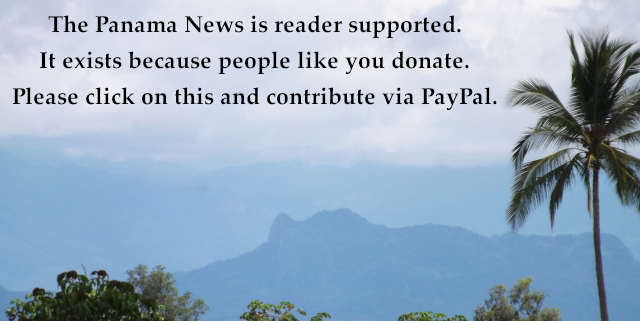
Welch, When fishing boats go dark at sea…
Panama’s National Aeronaval Service (SENAN) moves in to bust a fishing boat off of Anton. It had been detected fishing in a restricted zone. SENAN photo.
When fishing boats go dark at sea, they’re often
committing crimes – we mapped where it happensby Heather Welch, University of California, Santa Cruz
Countries can combat illegal, unreported and unauthorized fishing by
checking paperwork, verifying catches and sharing information across borders.Going dark at sea
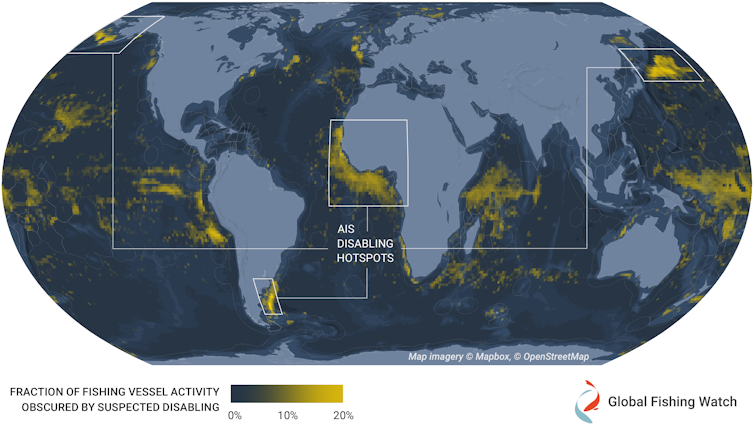
This map shows the fraction of fishing vessel activity hidden by AIS disabling events from 2017 to 2019. Heavy AIS disabling occurred adjacent to Argentina, West African nations and in the northwest Pacific – three regions where illegal fishing is common. In contrast, the disabling hot spot near Alaska occurs on intensively managed fishing grounds and likely represents vessels going dark to avoid competition with other boats.
Photo by Global Fishing Watch, CC BY-NDLaundering illegal catch
Valid reasons to turn off transponders
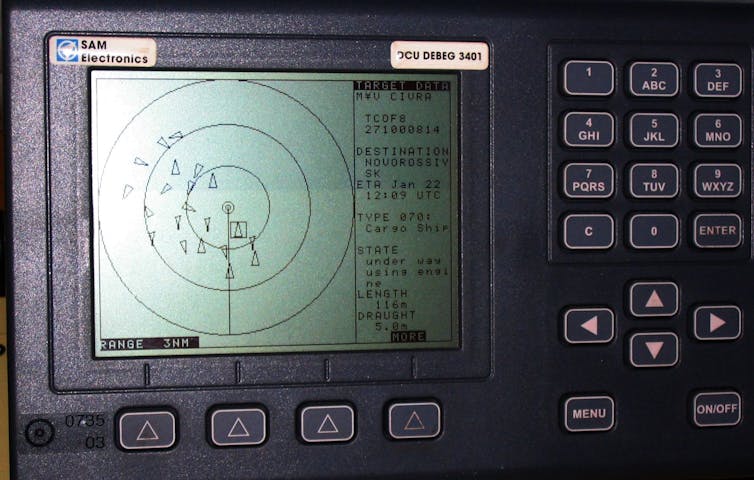
An AIS-equipped system on board a ship presents the bearing and distance of nearby vessels in a radarlike display format. Clipper / Wikimedia photo, CC.
![]()

Editorials: Be happy and safe; and The pork barrel and the Congress to come
A Transito cop stands guard during heavy holiday traffic. Archive photo by Eric Jackson.
Don’t drive like a jerk…
Hakeem Jeffries, set to be the minority leader, may actually come to dominate the House agenda in the incoming Congress. With the Republican majority in disarray, he’s a centrist who got no concerted opposition from progressives in a Democratic caucus that’s set to move a bit to the left. His hard work is cut out for him, but he will have his opportunities to lead. Photo from a CSPAN video.
An omnibus pork barrel to offend everybody, but…
A princess who used to be queen. Five-year-old official portrait by Jeroen van der Meyde.
Bear in mind…

Bernal, Los gorilas de entonces
43 years later…
by Miguel Antonio Bernal V.
Regulatory problems, at least in some places, for Twitter ban on other platforms
FTC chair Lina Khan leads a delegation of Justice Department and regulatory agency people in talks with their Chinese counterparts about antitrust issues of mutual concern. Federal Trade Commission photo.
FTC urged to take a close look as Musk’s Twitter bans links to competitors
by Jake Johnson – Common Dreams
Ocasio-Cortéz, About the Puerto Rico Status Act
AOC with staff and interns. Photo from her website.
The Puerto Rico Status Act explained
by US Representative Alexandria Ocasio-Cortéz
• Federally funded, objective educational materials about ALL THREE status options will be shared in advance of the vote in both Spanish and English, so that Puerto Ricans can fully assess their options for the future.
• Ends the option to continue the island’s current territorial status. For the first time, Puerto Ricans will choose between three non-territorial status options: statehood, independence, and sovereignty with free association to the United States.Beluche, La invasión: una derrota relativa, por supuesto, pero derrota
21 diciembre 1989, El Chorrillo. Foto por Spec. Morland. US National Archives.
La invasión norteamericana a Panamá
en el contexto latinoamericano por Olmedo Beluche
La época de los Acuerdos de Paz en Centroamérica
Panamá, del acuerdo neoliberal EEUU-Noriega a la invasión
En Panamá se estrenaron métodos y armamento que serían habituales en las dos Guerras del Golfo y en Afganistán.
La manipulación de la verdad y el control a la prensa, la principal arma de EEUU
Panamá: 30 años de régimen oligárquico y neoliberal gracias a la invasión
El signo de los tiempos está cambiando y en América Latina ha empezado un ascenso revolucionario
~ ~ ~
These announcements are interactive. Click on them for more information.
Estos anuncios son interactivos. Toque en ellos para seguir a las páginas de web.¿Wappin? Se acercan fiestas y el verano / Holidays and dry season approach
Rabbi Yonatan Neril, director of the Interfaith Center for Sustainable Development in Jerusalem, with other spiritual leaders. Wikimedia photo by Aryeh Ronay.
Interfaith isn’t anti-Christmas
Ecuménico no es antinavidadDaniel Kahn & Friends – Halleluja (in Yiddish)
https://youtu.be/XH1fERC_504Coven – One Tin Soldier
https://youtu.be/HKx0tdlxMfYBob Dylan – The Times They Are A-Changin
https://youtu.be/LruVLs6LsYEJanelle Davidson & Alejandro Lagrotta – Doble Dolor
https://youtu.be/U2EWkDn_YygJoan Baez – It Ain’t Me Babe
https://youtu.be/8CnhTG0G_uQLed Zeppelin – Kashmir
https://youtu.be/PD-MdiUm1_YMelanie – Lay It Down
https://youtu.be/8Q_S-wnT-pkYemen Blues – Mountains Will Dance
https://youtu.be/cXydCLZzc5EJefferson Airplane – Eskimo Blue Day
https://youtu.be/WeSMataA9R4The Maccabeats – I Have a Little Dreidel
https://youtu.be/AgywrSo4o3cErika Ender (y varios) – 30 Años de Trayectoria
https://youtu.be/7lNJF2VDKAcMICI, STM y CIAM: Este acuerdo que nunca fue
~ ~ ~
These announcements are interactive. Click on them for more information.
Estos anuncios son interactivos. Toque en ellos para seguir a las páginas de web.Editorials: Panama in 2024? and Coups d’etat
On the other side of the building, across the parking lot, the Martinelistas have an office with a big flag out front. Here the PRD was quietly gathering to set off in cars for a Saturday of political canvassing. Photo by Eric Jackson
Do you believe the 2024 Panamanian
election projections? Not so fast.If a coup is such a bad idea for the USA…
Bear in mind…

